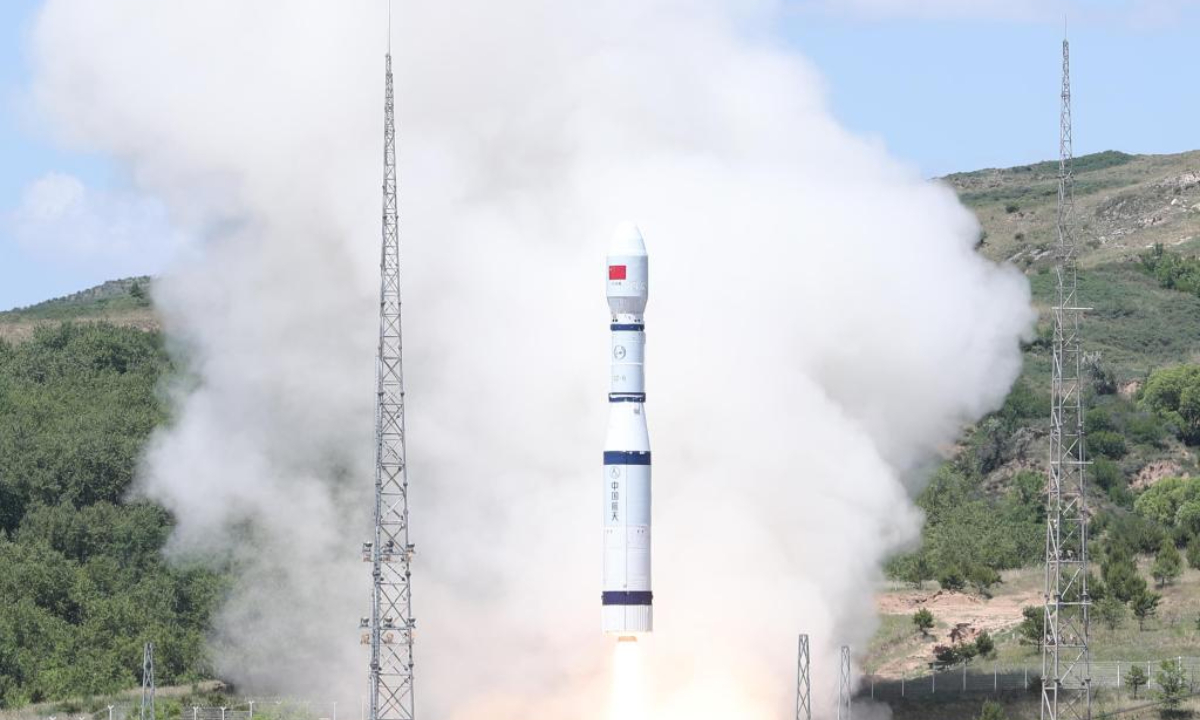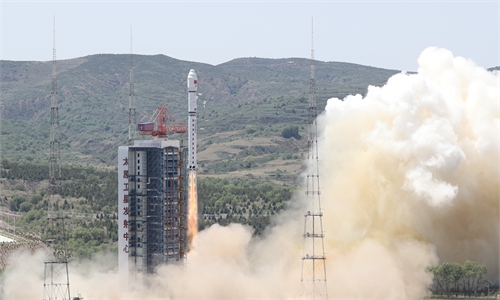
A Long March-6 carrier rocket carrying the Shiyan-25 experiment satellite blasts off from the Taiyuan Satellite Launch Center in north China's Shanxi Province, June 20, 2023. The satellite successfully entered the preset orbit. This satellite will mainly be used to carry out new Earth-observation technology experiments. Photo:Xinhua
China's Long March rocket launch opportunity will be auctioned for the first time on Thursday in a move that experts believe will reduce the cost of commercial access to space and boost high demand for commercial space applications.
"We will screen the qualifications of the enterprises, including their experience and their use for the space to ensure that the final products launched are contributing to the space industry," Zhang Peng, the general manager from an aerospace new business information technology company affiliated with the China Great Wall Industry Corporation under the China Aerospace Science and Technology Corporation (CASC), told the state broadcaster CCTV.
The rocket participating in the auction is the Long March-6 carrier rocket developed by the Shanghai Academy of Spaceflight Technology, a CASC subsidiary. The rocket is expected to be launched by the end of this year, according to the CCTV.
The auction is set to kick off at 3 pm on Thursday (July 13). The starting price is 80,000 yuan ($11,078) per kilogram.
With the continuous development of satellite technology in China, especially in the field of civil satellites, launching small satellites in batches and forming constellations in space has gradually become a mainstream. Figuring out how to meet growing demand for commercial launches and provide lower costs and more flexible launch methods is where "sharing rockets" come in, the CCTV report said.
Other rocket launch opportunities are scheduled for 2024, according to a list released by the CASC in April. There are a total of nine launch missions, providing different launch services for international and domestic markets, including "piggy-back" and "packet" launches.
According to Ding Jie from the China Great Wall Industry Corporation, China specifically encouraged private enterprises to develop commercial spaceflight in an outline in 2015. Since then, domestic commercial spaceflight has been growing at a rapid rate of 20 percent every year, with products ranging from rocket launches, satellite research and development as well as satellite application.
In the first half of 2023, the commercial space industry continued to maintain rapid growth, with successive successful launches of solid- propellant carrier rockets such as Kuaizhou and the successful maiden flight of the liquid-fueled carrier rocket Tianlong-2. At present, more than 350 Chinese commercial space satellites have been put into orbit.
Global Times



